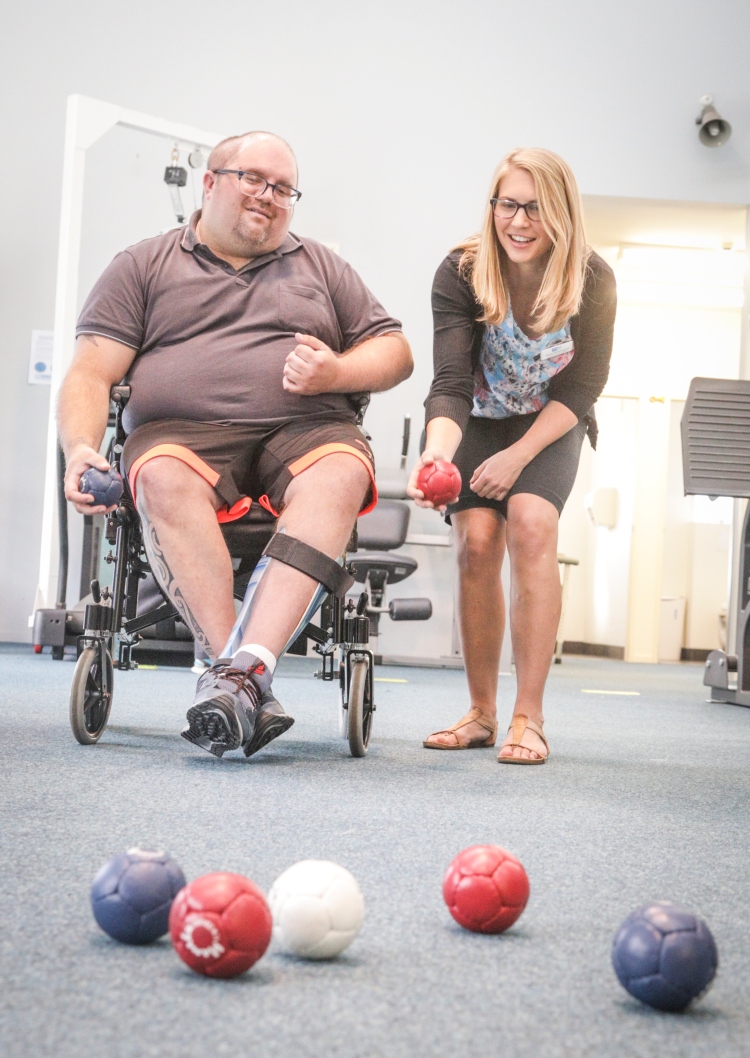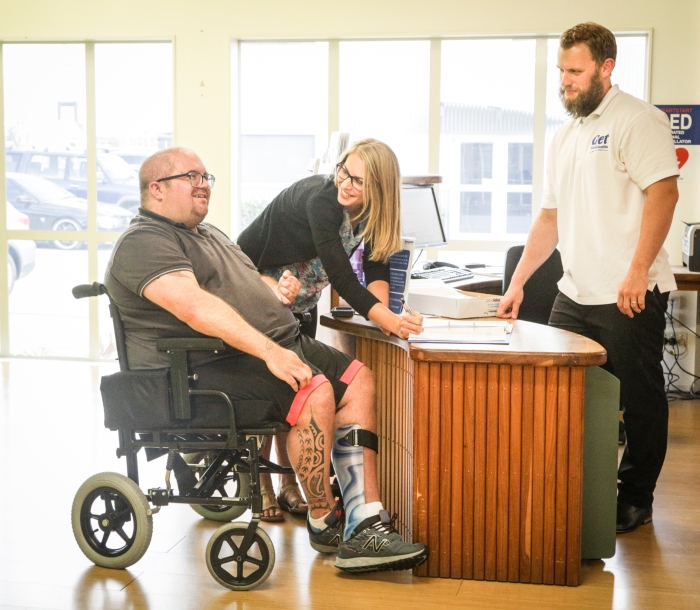Our Community Stroke Advisors (CSAs) are professional advisors for stroke survivors and family/whanau members or carers living in the community. The aim of the service is to help stroke survivors realise their full potential for recovery and wellbeing following a stroke. The service is free and has helped many stroke survivors regain life after stroke.

A CSA:
- Makes hospital and home visits to introduce and explain the CSA service
- Works with stroke survivors, family/whānau and carers to assess needs
- Develops an action plan to meet current needs and to achieve specific goals in partnership with the client, collaborating with other health professionals as required
- Provides support, information and advice to build knowledge and skills that assist effective adaptation to disability and minimise risk of further strokes. Information includes the nature of stroke, its causes and risk factors, prevention tips, the role of treatment and rehabilitation and how to optimise life after stroke and manage after-effects such as fatigue and depression. A wide range of printed resources are available
- For individuals diagnosed with Transient Ischaemic Attack (TIA) offers plain language information about TIA, lifestyle changes to minimise risk of further strokes and how to identify and respond if one is occurring
- Networks in the community and provides service coordination and navigation to ensure clients are referred to the best services to meet their needs. This includes local stroke clubs and other groups for social support
- Supports working age people to return to work in conjunction with our Return to Work Advisors
- Provides advocacy support where clients face barriers to accessing services
- Provides information on transport options when unable to drive and how to obtain Total Mobility half price taxi fares if the client is eligible.
Watch our short video for a quick introduction to the Community Stroke Advisor service:
Stroke survivor Rob Coles talks more about his experience of using Stroke Foundation services:
Stroke Clubs, support groups, recreational activities
Stroke clubs provide mutual support to people with stroke, their family, whānau, carers and supporters. They enable people to share experiences, to understand more about stroke, to meet new people and to participate in social activities and special events. CSAs provide links to local clubs if people wish to join.
CSAs know about local support groups and recreational activities of value to people with stroke, their families, whānau and carers. These may include exercise groups, sports clubs, accessible gyms, art and craft groups, therapies, caregiver, partner or family support groups and younger stroke survivor groups. CSAs link clients with these community services.
Engagement with CSA service
A stroke survivor and their immediate family, whānau and carer or carers are welcome to engage with the CSA service.
Before beginning with the CSA service an ‘Agreement to Participate’ is completed. This process confirms each client understands how their health information will be used during their engagement with the CSA service.
Clients are provided with The Code of Health and Disability Services Consumers’ Rights. The CSA can contact a health and disability advocate for a client if necessary.

Referrals for CSA service
· People with stroke, their families, whānau can request this service themselves
· Any medical and rehabilitation service, community group or residential facility can make a referral to the service.
· You can contact your local Community Stroke Advisor or regional office by text, phone or email - see below for details.
Return to Work programme (available in Auckland and Christchurch only)
Our Return to Work service is free for stroke survivors who wish to return to the workforce. Return to Work Advisors provide expertise and support to guide stroke survivors through the process of returning safely to employment, and work with employers to help them support their employees who have experienced a stroke.
We have three Return to Work Advisors in Auckland and one Return to Work Advisor in Christchurch. The CSAs link clients with this service.
Click here to read more about our Return to Work programme